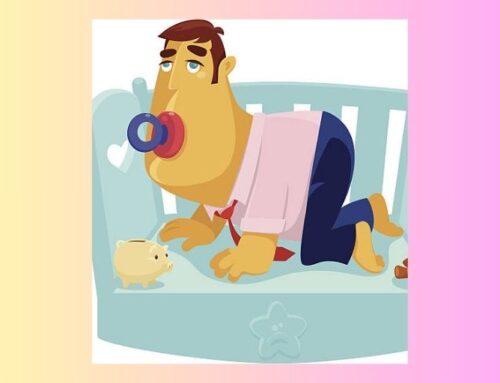“It’s the small things that will make you successful.” The Great Khali
Many of us are caught up in our need to drastically change ourselves, others or our lives. We believe that only supreme efforts on our parts will make the changes we want to achieve.
We also believe that we need to change almost everything about ourselves and our circumstances, and as quickly as possible. As a result, we feel so overwhelmed that we give up even before we start.
But what we don’t realize is that one small, even subtle shift in our choices and behavior can achieve surprising results.
Additionally we don’t recognize that small changes can create an unstoppable momentum toward the deeper changes that we desire.
Small Changes — Two Stories
Story One
“Great things are done by a series of small things brought together.” Vincent Van Gogh
Marnie has always been a radical change artiste. Her motivation for radical change has been her lack of satisfaction with who she is and what she has accomplished in her life. She believes that the only way to deal with her discontent is to make major changes in her circumstances by changing relationships, cities and jobs. Her belief is that these far-reaching changes would somehow fix her. However any fulfillment derived from her drastic changes are short-lived. After a period of hope, even excitement, at the change she made, the “old ennui” returns. What her therapist suggests is that she try to approach her situation differently, firstly by calling time-out any further big changes, and then by making one or two small adjustments in her current situation. To begin with she will focus on her attitude toward her work (see her job as an opportunity to learn new skills) and then implement one concrete small action that she can take to support that attitudinal change (volunteer to serve on a worked-based committee). Post these small changes, she finds that she is experiencing less discontent. She is also feeling something quite new — pride in what she’s accomplished thus far.
Story Two
“Little drops of water make the mighty ocean.” Julia Carney
Gill’s son, Chaz, an active alcoholic, routinely verbally abuses Gill especially when he is “in his cups”. Chaz’s words and behavior have greatly upset Gill, even though he knows that what Chaz says and does is triggered by his drinking. Gill now accepts that he cannot change Chaz or his addiction, so he has decided, with support of a recovery group, to change how he responds to Chaz. Specifically, when his son goes on an offensive rant, Gill has decided to either ignore him or gently depart the room. Only when Chaz is sober and reasonable does Gill gives Chaz his time and attention. These small changes have created huge results. His son’s tirades have decreased because Gill is no longer negatively reinforcing them by reacting and responding with hurt and anger. Gill is now considering other ways he can take the focus off his son and place it where it belongs: on himself and the changes he can make to improve his own life, despite his son’s drinking.
How Small Changes Work
“Sometimes the smallest step in the right direction ends up being the biggest step of your life.” Naeem Callaway
Of course, nothing is absolutely certain, but small changes increase the possibility of deeper transformation, because, for the change-maker, one small change…
- Lays the groundwork for potentially greater changes to take place.
- Opens the eyes to new possibilities never before considered.
- Builds confidence and strength – mental, physical and spiritual.
- Provides an opportunity to build new skills and abilities.
All of that being said, not all small changes need to lead to more and more change. One or two small changes, well-executed, may be enough to get the job done.







